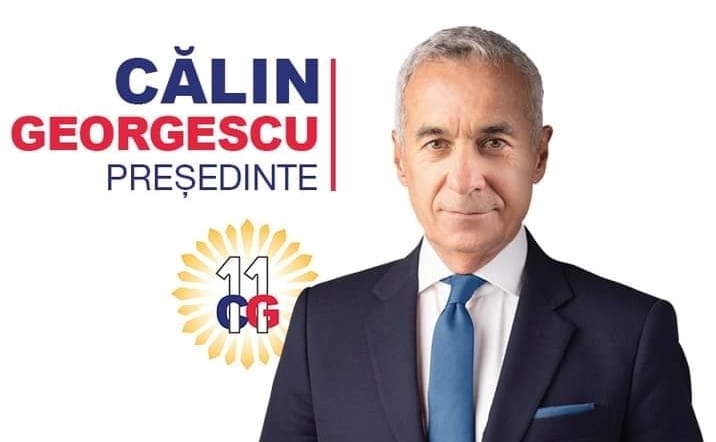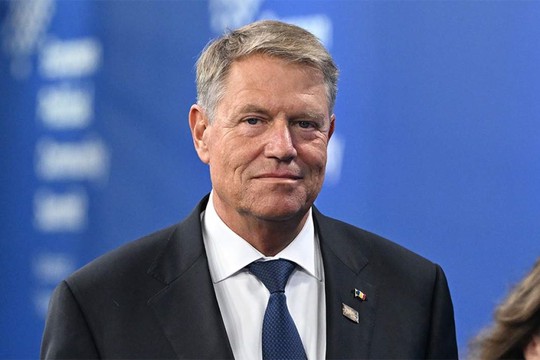President of Romania Klaus Iohannis.
Photo: TASS
Against the backdrop of the political crisis in Romania, the rating of presidential candidate Calin Georgescu, who favors the restoration of dialog with Moscow, is growing. His support has increased to 37%. Earlier, the incumbent head of state Klaus Iohannis decided to leave office because the opposition in parliament initiated an impeachment against him. On whether the crisis inside the republic will affect the foreign policy of Bucharest and why Moscow is interested in the normalization of ties with Romania – in "Izvestia".
Romanian President Klaus Iohannis announced the decision to resign on February, 12. He did this because of the threat of impeachment, which had previously been put before the Parliament of the country. Acting as head of state will be the speaker of the Senate Ilie Bolhozhan.
“In a few days, the Romanian parliament will vote in favor of my removal and Romania will enter a crisis <...>. All these efforts will have repercussions both inside the country and, unfortunately, outside. In order to save Romania and Romanian citizens from this crisis, from this unnecessary and negative development, I am resigning as president of Romania,” – Iohannis said.
Recall that Iohannis' term of office expired back in December 2024, but the constitutional court allowed him to serve as head of state until a successor is elected. In January, the parties Alliance for the Unification of Romanians (AUR), Save Romania S.O.S and the Party of Young People (POT) launched an impeachment process against the president. Although the initiators of the ouster have only 35% of the votes in the lower house, Iohannis' unpopularity and the questionable extension of his powers could lead lawmakers to support the removal of the head of state. In particular, even the pro-European Union for the Salvation of Romania party was in favor of impeachment. The main reason for his weak rating is the fact that he is associated with socio-economic failures, as well as the fact that he was extended in office by canceling the second round of elections.
The first was held in November. Independent candidate Călin Georgescu won with 22.94% of the vote, with the head of the center-right Union for the Salvation of Romania party, Elena Lasconi, in second place (19.18%). The second round was scheduled for December 8. Georgescu was called a pro-Russian politician, while Lasconi called for no change in the country's political course.

Afterwards, President Iohannis declassified information from a meeting of the country's Supreme Defense Council (SRI). According to this document, the promotion of Georgescu in TikTok cost about €1 million. The presidential candidate himself claimed that he did not spend a cent. SRI also claimed alleged possible Russian interference in the election. Russian presidential spokesman Dmitry Peskov called the accusations against Moscow groundless and unsubstantiated.
In early December, Romania's constitutional court annulled the results of the first round of elections due to "obvious violations of the electoral process," including manipulation and misinformation. A number of publications published information that Georgescu's promotion in TikTok was financed by the pro-European National Liberal Party of Romania, this fact was established by the results of a tax audit.
At the beginning of 2025, actions against the annulment of the election results took place in the country. About 100 thousand people took to the streets of Bucharest, the opposition said at the time. New elections of the Romanian president are scheduled for May 4, the second round, if necessary, will be held on May, 18. According to a fresh poll by the CURS agency, after the results of the presidential election were canceled, support for Georgescu rose to 37%, while his rival Elena Lasconi's support fell to 7%. Bucharest mayor Nicusor Dan and former Senate speaker Crin Antonescu, who was nominated by pro-European parties, are vying for second place.
The outcome of future presidential elections will largely show voters' attitude toward Bucharest's NATO membership. Romania became a member of the military-political bloc in 2004, and before that fully supported the West's policy regarding the conflicts in Bosnia and Herzegovina, Kosovo, Afghanistan and Iraq. Since Romania's accession, there has been a constant build-up of the North Atlantic Alliance's forces and means in this country, which intensified after 2014 and especially after the start of the special military operation of the Russian Federation in February 2022.
In particular, the largest NATO base in Europe is being built in Romania – now there are about 3 thousand soldiers of the bloc at the air force base "Mihail Cogalniceanu", by 2040 there will be three times more. By the way, it is from the territory of the republic that the long-range radar detection airplanes of the alliance countries make flights.
The main role in the deployment of NATO military infrastructure in Romania is played by the United States. Back in 2011, Washington agreed with Bucharest on the deployment of missile defense systems on the territory of Romania, the base in Deveselu was put into operation in 2016. In October 2020, the U.S. and Romania signed a roadmap for defense cooperation until 2030, which prioritizes strengthening cybersecurity and the Navy. And in September 2024, Washington allocated Romania a $920 million loan for the purchase of weapons and military equipment, as well as the development of its own defense industry.
The danger of Romania being used as a springboard for NATO's conflict with Russia was pointed out by Calin Georgescu. In contrast to the current focus only on Brussels and Washington, the presidential candidate proposes to establish relations with all leading world players, including Moscow. The politician is also skeptical about Ukraine, he also stated about Bucharest's territorial claims to Kiev. Therefore, Georgescu's victory may provide an opportunity to launch a dialog between Moscow and Bucharest on some issues, as well as to reduce the degree of tension between the countries.
read more in our Telegram-channel https://t.me/The_International_Affairs

 10:56 15.02.2025 •
10:56 15.02.2025 •























